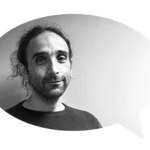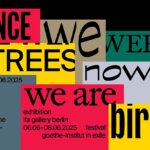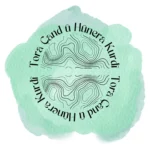Overview
The conversation series, Ways of Remembering: Memories, Representations, Contexts, will explore the current state of memory studies, with a particular focus on violent and contested histories, and the various ways in which these histories are represented or silenced. In each session, guest scholars and cultural practitioners from a diverse range of contexts and disciplines will engage in critical conversations about specific cases of memorialisation and cultural representation of difficult pasts.
The series will especially concentrate on the multilayered imbalance between the representations of the past and how this asymmetry translates into the present-day politics, society and culture in different contexts.
Learning Outcomes
The conversations will provide participants the opportunity to reflect on different topics in the field, including but not limited to:
- Cultural and artistic representations of violent histories
- Nation-building and memory
- Spatiality of memory
- Temporality of memory
- Emotions, affect and memory
- Reconciliation, justice and contemporary atrocities.
The conversations will address the following questions alongside many others:
- What, why and how do we remember?
- What is the role of memory in nation-building?
- How do memorialisation and cultural representation influence processes of reconciliation with violent pasts?
- How do emotions and affect play a role in remembering and forgetting?
- How does space function as a field of memory practice?
- What is the significance of remembering the past in relation to present atrocities?
Outline
Info Session
16 October 2024
16:00-18:00 CET
- Info Session for the semester
Session 1
06 November 2024
16:00-18:00 CET
- Introduction to the conversation series
Session 2
20 November 2024
16:00-18:00 CET
- Walking Tours as Memory Activism
Conversation with Michal Huss and Yara Shahine-Gharable
This talk will unpack how heritage walking tours can reference and visualise traumatic legacies, and as such can be used to power political projects asserting the rights of displaced persons, redefining the parameters of urban belonging, and de-colonizing cities. It will focus on two strands of walking tours, closely illustrating how they turn urban space into a stage for the critique and diversification of public memory. The first are walking tours in Berlin, guided by Syrian and Iraqi refugees, which use memorials of local traumatic history to testify to more recent traumas elsewhere, and to expand the parameters of urban belonging. The second are tours of Yaffa (Jaffa in Arabic), in which Internally Displaced Palestinians use ruins to resist the ongoing erasure of Palestinian traumatic memory and modern urban history. By bringing these distinct geo-political interventions together, the paper will advance a broader argument on the potential of walking to inform de-colonial and cosmopolitan understandings of the city and its heritage. Walking has a triple meaning for this lecture, as a research topic, a research method, and a practice. We will reflect on the use of “walking” ethnography expanded through artistic mapping and visual documentation, and on the use of walking as a political practice and mode of memory activism. Working across the disciplines of history and architecture, and in between theory, method, and practice, we will reflect on the poetic and aesthetic qualities of walking, and the agency of pedestrians to rewrite the city’s architectural syntax – weaving spaces together, marking unregistered memory sites, and giving voice to marginal stories and perspectives.
Session 3
04 December 2024
11:30-13:00 CET
- Methods of Studying Memory After Catastrophe: The Collaborative Practice of an Artist and an Anthropologist in Antakya
Conversation with Yael Navaro and Emrah Gökdemir
This session will delve into the collaborative research between the anthropologist Yael Navaro and the artist Emrah Gökdemir in Antakya since 2012. What does a collaboration between anthropology and art bring to memory work? What methods may be generated through such a collaboration and what new conceptualizations of memory via Antakya’s layered history? How did Yael and Emrah’s research practice transform after the Antakya earthquakes?
The session will include a screening of Emrah’s film What do the Birds Say. The film follows the director’s walks through Antakya between 2017 and 2024, tracing bird paintings encountered along the way and the story of a Syrian artist who created them. Through the eyes of witnesses, the documentary opens a window into the struggle for survival of this artist, an individual whose identity remains unknown even today. It also sheds light on the socio-economic and cultural relations between the residents of Antakya and Syrians.
The session will include a screening of Emrah’s film What do the Birds Say. The film follows the director’s walks through Antakya between 2017 and 2024, tracing bird paintings encountered along the way and the story of a Syrian artist who created them. Through the eyes of witnesses, the documentary opens a window into the struggle for survival of this artist, an individual whose identity remains unknown even today. It also sheds light on the socio-economic and cultural relations between the residents of Antakya and Syrians.
Session 4
08 January 2025
16:00-18:00 CET
- Art, Knowledge Production, and the Organizing of Forgetting
Conversation with Banu Karaca
Working from the proposition that the production, circulation, and presentation of art in its institutional formation has been shaped by (state) violence and dispossession, this session will focus on how art is staked to memory and erasure, resistance and restoration, and why art has been at once vital and unwieldy for national projects. While art, just like cultural heritage, is often hailed for its capacity to mobilize memory, we will examine the art world as a site at which forgetting is established and maintained. Drawing on a variety of case studies, the discussion will explore how violence and dispossession (and their disavowal) have created the material and legal conditions of forgetting, and how forgetting is organized in the knowledge production on art and heritage, be it in the practice of writing art history or in public discourses.
Session 5
15 January 2025
16:00-18:00 CET
- Art, Memory-Work and Counter-Cartographies in Berlin
Conversation with Larissa Fassler, Desirée Desmarattes and Tonderai Koschke, hosted by Karen Till.
This conversation highlights how works of memory and art make visible the complexities and traumas of particular places which have become sites of protest in the ‘wounded city’ (Till, 2012) of Berlin. After Karen briefly introduces the context of memory cultures in Berlin, she will host a conversation with artists to explore how their creative remappings of particular places and built environments invites the city’s inhabitants to become more aware of the legacies of state-perpetrated violence and the possibilities of more just futures. In Hour 1, we explore two works by artist Larissa Fassler – the diptych canvasses Forms of Brutality (2019), revealing the multiple realities of Moritzplatz in Berlin-Kreuzberg, and the sculpture Palaces/Palaces (2022), depicting multiple historic city palaces and the controversial Humboldt Forum at the Museum Island in Berlin-Mitte. We consider the artist’s use of counter-mapping practices that result in palimpsestic works that embody the legacies of power, trauma, and resistance in Berlin in present-day landscapes. In Hour 2, we continue the discussion of anticolonial memory-work. Arts producer, artist and researcher Desirée Desmarattes will provide a brief overview of the pilot project ‘Dekoloniale Erinnerungskultur in der Stadt’ (Decolonising Memory Cultures in the City, hereafter Dekoloniale) and introduce Dekoloniale’s decentralised 2024 Festival ‘Was Bleibt?/What Remains’ held in Berlin-Mitte and Wedding. The festival’s artist in residence programme focused on ‘Colonial Ghosts – Resistant Spirits: Church, Colonialism and Beyond’. Dekoloniale artist-in-residence Tonderai Kosche will then introduce her Terra Multis project, with installations in the medieval Nikolaikirche and at the Afrikanisches Str. U-Bahn stop. In both hours, we consider how place-based artistic interventions invite urban inhabitants to become more critically aware of Berlin’s forgetful histories and become inspired by alternative imaginaries.
Session 6
29 January 2025
16:00-18:00 CET
- Visibility/Invisibility: A Problematique of Remembering in the Present Time
Conversation with Meltem Ahıska
By referring to two short films produced in Turkey, Tarihte Yaşanmamış Olaylar (Serpêhatiyên Neqewimî / Things Unheard of) (Ramazan Kılıç, 2023), and Anadolu Yok (There is no Anatolia) (Ferit Katipoğlu, 2017), this session will problematize the problematic of visibility and invisibility with regard to various concepts and issues of memory. We will dwell on frames of perception within the regimes of visibility in relation to remembering and forgetting in the present time, and discuss ways of questioning “the obviousness of the visible in order to sketch a new topography of the visible” in Jacques Rancière’s terms. The question of archives, and the connection between memory and senses, as well as between memory and history will be further explored in this vein.
Moderator
Veli Başyiğit
Veli Başyiğit is a cultural manager based in Berlin and a fellow at Off University. His practice focuses on collective memory, encountering difficult pasts, social movements, cultural heritage and disseminating knowledge through creative means. He earned his BA in Cultural Studies from Sabancı University in 2016 and his MA in Sociology and Social Anthropology from Central European University in 2017. From 2018 to 2024, he worked at Anadolu Kültür on various projects in the fields of cultural heritage, transnational cultural collaboration and research-based exhibitions. He is currently involved in the digital archive and online exhibition project Diyarbakır’s Memory, a partnership between Anadolu Kültür and the Diyarbakır Association for the Protection of Cultural and Natural Assets. In 2016, his research report on obstacles to artistic freedom of expression at Turkey’s film festivals was published by Siyah Bant.
Guests
Meltem Ahıska
Meltem Ahıska worked as a Professor of Sociology at Boğaziçi University, Istanbul until October 2023. She continues to teach as a part-time professor at Boğaziçi and Kadir Has universities besides being an independent researcher and writer. She is also the founder and co-coordinator of Waves: Critical practices of thinking, research, and arts, an initiative established in Istanbul in Spring 2024. She has written and edited a number of books, including Occidentalism in Turkey: Questions of Modernity and National Identity in Turkish Radio Broadcasting. Her articles and essays on Occidentalism, social memory, archives, monuments, political subjectivity, gender, and feminism have appeared in various journals and edited volumes. She is a member of the editorial board of the e-journal Red Thread, and of the editorial advisory board of the e-journal Critical Times.
Desirée Desmarattes
Desirée Desmarattes is a German-Haitian artist, researcher and founding member of an art collective. She works between artistic research, practice and production. After practicing in Portugal for a number of years, she returned to Berlin to become Subproject Coordinator of the In[ter]ventions programming of Dekoloniale Erinnerungskultur in der Stadt and was one of the coordinators of the 2024 Dekoloniale Festival. Her work examines the colonial legacy in different systems and cultures and seeks to analyse the effectiveness of deconstructing stereotypes to promote collaboration and understanding within society. Research topics include postcolonialism, transnationalism and identity in contemporary art.
Larissa Fassler
Larissa Fassler (BFA, Concordia University, Montreal; MFA, Goldsmiths’ College, University of London) has lived and worked as an artist in Berlin since 1999. Her art documents and interrogates the geo-spatial politics of city life. With cartographic paintings and drawings, and architectural sculptures, she creates visualisations of the observable and intangible characteristics of a city, and documents the complicated socioeconomic and cultural issues affecting urban space today. In recent years her work has become increasingly political, charting growing economic disparity, political divisiveness, gender and racialized segregation and violence. Fassler has exhibited her work in numerous solo exhibitions internationally, and her work is held in a number of private collections. She has received many grants and awards for her work, and a monograph of her work was published in 2022 and is now available at DISTANZ.
Emrah Gökdemir
A visual artist and researcher, Emrah Gökdemir studied at the Painting Department of Mustafa Kemal University in Antakya (2003-2007). His works encompass various mediums, including performance, painting, installation, photography, and video. He
has participated in numerous artistic events and exhibited his work both in Turkey and internationally. Since 2012, he has collaborated with Prof. Yael Navaro from the University of Cambridge on social anthropology research in Antakya. He was an artistin- residence at HALLE 14 in Leipzig (2020-2022) and the Goethe Institute Thessaloniki (May-July 2024). He directed the documentary Kuşlar Ne Der? (2024), filmed in Antakya, and has been part of the curatorial team for the Stre!fen Performance Art Festival since 2021. He currently lives and works in Leipzig.
Michal Huss
Dr. Michal Hussis a Leverhulme early career fellow and Lecturer in Architectural Studies at the University of Manchester. She researches spatial (in)justice and struggles over the built environment and the right to the city. Her upcoming book, Refugees, Urban Belonging and the Transgressive Art of Walking, studies urban resistance of displaced populations within transcultural landscapes. She has set up numerous workshops on radical cartography, in and around gentrifying spaces and in migration detention centres.
Banu Karaca
Banu Karaca works at the intersection of political anthropology and critical theory, art, aesthetics, and cultural policy, museum and feminist memory studies. She has published on freedom of expression in the arts, the visualization of gendered memories of war and political violence, visual literacy, and restitution. She is the author of The National Frame: Art and State Violence in Turkey and Germany (Fordham University Press, 2021), and co-editor of Women Mobilizing Memory (Columbia University Press, 2019). In 2011, she co-founded Siyah Bant, a research platform that documents censorship in the arts in Turkey. Banu has been awarded a Consolidator Grant by the European Research Council for her project “Beyond Restitution: Heritage, (Dis)Possession and the Politics of Knowledge,” which she directs at the Forum Transregionale Studien, Berlin. Her current research examines how art dispossessed in episodes of state violence against non-Muslims in the late Ottoman Empire and the early Turkish republic has shaped the knowledge
Tonderai Koschke
Tonderai Koschke is an architectural researcher and educator based in Berlin. Having studied at TU Munich, EPFL Lausanne, and Harvard, she has a MA in Architecture, and has worked at Architangle publishers, Boltshauser Architekten, and as a curatorial assistant at the Architecture Museum in Munich. She is currently Lecturer at Weissensee School of Art and Universität der Künste Berlin, teaching about/researching post-colonial identities and power dynamics in the built environment. She also co-founded Isusu Ffena, a pan-Afrikan collective based in Berlin, that produces events and a community festival. Through mappings, sketches, architectural history, and installations, her work challenges the violences of colonial capitalism and celebrates the resistance and present/future realities and possibilities of subaltern urban communities.
Yael Navaro
Yael Navaro is Professor of Social Anthropology at the University of Cambridge where she has been teaching since 1999. She is known for her work on spatial, affective and material memory in postwar/postgenocide environments. She has carried out fieldwork in Istanbul, Nicosia and Antakya. Her publications include Faces of the State: Secularism and Public Life in Turkey (Princeton University Press, 2002), The Make-Believe Space: Affective Geography in a Postwar Polity (Durham: Duke University Press, 2012), and the co-edited Reverberations: Violence Across Time and Space (University of Pennsylvania Press, 2021) alongside many articles in anthropology journals. She is currently working on ecological/environmental memory in post-earthquake Antakya.
Yara Shahine-Gharable
Yara Shahine-Gharable is an educator and community leader. She is a master’s student at Tel Aviv University (Al-Shaykh Muwannis) in the Department of General History. Her research focuses on the reorganisation (or survival) of Palestinian society in Jaffa during the early 1950s. Particularly, it examines how Palestinian society in Jaffa defined itself and adapted to survive after 1948. This is done through the examination of Palestinian women’s economic, social, and cultural positions. Until recently, she has been the coordinator of the A4E hotline for students facing political persecution and harassment on campuses within Israel. She is currently a member of the Academia for Equality executive board.
Karen Till
Karen Till is a Professor of Cultural Geography at Maynooth University and Member of the Royal Irish Academy. Her research, curatorial, and activist work highlights the importance of the place-based practices of memory-work, solidarity, and care by artists, activists, and community leaders challenging legacies of state- perpetrated violence and creating more just places to live well together, including in the wounded cities of Berlin, Dublin, Cape Town, and Minneapolis. Her publications include numerous articles and book chapters, and the book The New Berlin: Memory, Politics, Place and edited arts volume Earth Writings: Bogs, Fields, Forests, and Gardens (2022), which received the Geographical Society of Ireland’s Book of the Year award. Karen convenes the Space&Place Research Collaborative in Ireland, and co- convenes the international Feminist Counter-Topographies reading group.
Certification
This course is hosted by Bremen University and certified with 3 ECTS upon successful completion.
Please check the course requirements from the course syllabus and inform your instructor(s) about your request to receive a certificate for this course.
You will find the full syllabus on Moodle course page.
At the end of the semester, the instructors will inform the learning designer about your request and grade. The certificate will be prepared with the university secretariat and it may take up to 8 weeks.
Registration
Our courses are held on a digital learning platform, Moodle. Before you create your account on Moodle, we have some notes for your and others’ digital security.
- When you register, you can use a nickname. Nicknames with offensive, racist or sexist undertones will not be accepted.
- Communication outside of the platform is not private. It is a solidarity action with people who would like to stay anonymous for different reasons. Please use our secure platform to communicate with others and respect their choices of communication channels.
- We aim to create an inclusive learning environment with our participants and educate ourselves in a more inclusive language. Be eager and tolerant to learn from each other and challenge any discriminating language. You can have a look at it here.
Creating a new account and registering to a course on Moodle
1. The link will take you to the Off University Moodle homepage.
2. Click the “Log in” button on the top right side of the page.
If you have an account on Off University Moodle, please login and continue from step 7 below.
3. Scroll down to see “Create new account” and click the button.
4. Please fill in the fields marked as *required.
You can use false information to protect your identity and increase your safety. You can enter a nickname, a false email address that resembles the format, such as name@example.org etc. Please note down your user name and password in a safe place.
5. Once you created your account, please wait until the next working day to continue.
Your account needs activation which will be done by Off University. We will need some time to activate your account. This can take up to 24 hours on weekdays and longer on weekends.
6. Please login to check whether your account it active. Once you can login, you will find the available courses on the home page of Moodle and will be able to register by clicking the course title.
7. You can now discover the course page. The first item on the page, General, contains the syllabus and the announcements. Please follow these announcements to stay up to date about your course.







